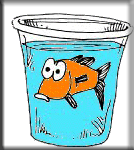
Uncle Ned's Fish Factory

 |
Uncle Ned's Fish Factory |
 |
|---|---|---|
| 1590 Main St (Rte. 109), Millis MA 02054, USA, (508) 533 5969 | ||
I don’t know why I like to keep fish … but it sure is fun.
Most fish have beautiful colors and interesting behavior. Some fish are almost intelligent and have great personalities. Hobbyists sometimes get very attached to their fish, just as others do to a dog or cat.
Certain species of fish can live for years or even decades.Some folks say watching fish swim is relaxing and good for your state of mind.
Most aquatic systems can have many varieties of critters living in the same environment, but there are also many species available as pets that are natural enemies of each other. Most big fish eat most little fish, obviously.
Some vegetarian species can be extremely aggressive to their own kind. Males of many species can fight with each other.
Besides favorite color and behavior, other factors in fish selection are: degree of difficulty, the size of the aquarium, AND personality of the fishkeeper! If you think you want to be a major "Fish-head" you might try breeding and raising rare and delicate dwarf cichlids… or if you just want fish that are colorful, easy, and can tolerate being ignored you might try tetras and cory cats. If you need your tank to be absolutely stunning get a planted aquarium or a coral reef with special lighting.
Feeding the fish is extremely important. Just as it is with all animals proper nutrition is the best way to prevent disease.
The types of food to put in your aquarium are specific to the kind of fish you keep, bottom feeders need sinking foods, top feeders need floating foods, all fish benefit from variety. We even feed bananas, zuchini, and freeze-dried seaweed to some tanks.
Predatory fish need live food frequently so we offer them earthworms and live fish.
 All aquatic systems need regular, partial water changes. For most aquariums, we suggest changing 30% of the water twice a month.
All aquatic systems need regular, partial water changes. For most aquariums, we suggest changing 30% of the water twice a month.
If you’re maintaining a small to medium size aquarium, the water changes should only take about fifteen minutes or less each time. Easy–to–use equipment is available to make the process a pleasure instead of a chore. The temperature of the new water should be the same as the tank water (77 dgrees F. for most tropical aquariums.)
Most tap water is fine for most fish in most localities, but almost all tap water should be treated with a chlorine remover, such as Novaqua or Aquatan.
It’s good to have a general idea of the water chemistry you’re working with. For example, Westwood, Medfield, Millis, and Holliston usually have hard alkaline water… Franklin, Bellingham, and Milford sometimes have soft acid water. A pH way below 6.0 is usually not good, unless you’re trying to breed an acid-loving fish such as a rare killifish. For general maintenance, a pH between 6.5 and 8.0 is fine… but it’s best that it be consistent… that’s why the frequent partial water changes are helpful. It’s a good idea to do a pH test on your tap water before putting it in your tank. In one instance, municipal water workers put in too much buffering chemicals and the new water went to a pH of over 10.0 injuring one of my customer’s fish. In another instance, a customer had a prefilter on her house water that caused problems, perhaps too much sodium, so she had her plumber bypass it and the fish did better.
A fish tank filter is not a filter. It is a bacteria farm… a beneficial bacteria farm.
When fish breathe or urinate and when organic matter decays ammonia is produced. Ammonia is broken down by one type of bacteria into a chemical called nitrite. Nitrite is broken down by a second bacteria into a chemical called nitrate. Ammonia and nitrite are very toxic even in tiny amounts. Nitrate is only toxic in very high amounts. So, all we have to do is let the good bacteria in the filter media detoxify the ammonia and nitrite, then we aquarists control the nitrate with regular partial water changes.
Outdoor fish ponds are becoming very popular. In the New England area with our sometimes very cold winters it is best to dig your pond at least 30 inches deep in at least one spot. This keeps the pond from freezing all the way to the bottom. Local codes vary on how deep a garden pond can be without a fence surrounding it.
If you’re making a shallow pond it’s best to bring the fish indoors during the winter. Also electric pond de-icers are useful and available.
We offer several species of coldwater ornamental fish… including Goldfish and koi in many color varieties.
Usually everybody’s favorite, saltwater tanks are easier than ever… thanks to the use of "live rock". Live rock is the boulders actually collected in the ocean which has beneficial bacteria and algaes to naturally purify seawater.
Even more so than in a freshwater aquarium, the selection of critters for a marine aquarium should be very carefully made. Many many of the available animals consume each other in the wild. The staff at Uncle Ned’s can help you select hardy fish and invertibrates that will live together in your mini environment.
Never release an ornamental fish into the wild. Whether you have unwanted goldfish or an overgrown Oscar always either euthanize or return the fish to where you bought it. The same is true for aquarium or pond plants. Introduced species are a major problem in our environment. It is the responsibility of pet owners and hobbyists to keep captive species captive. If we don’t police ourselves there plenty of organizations that want to police us.